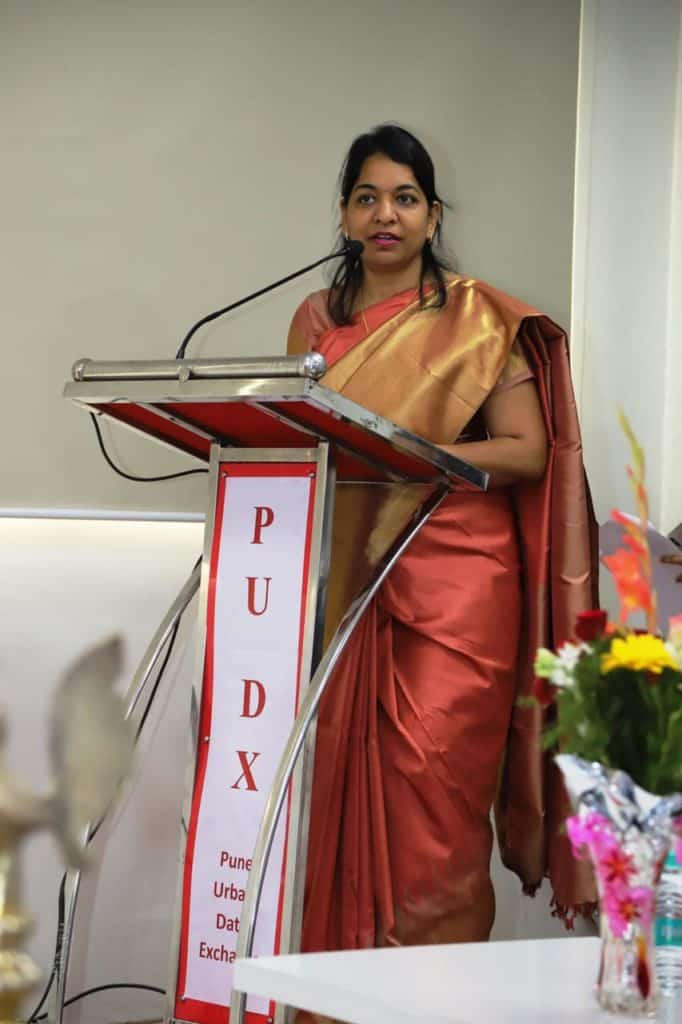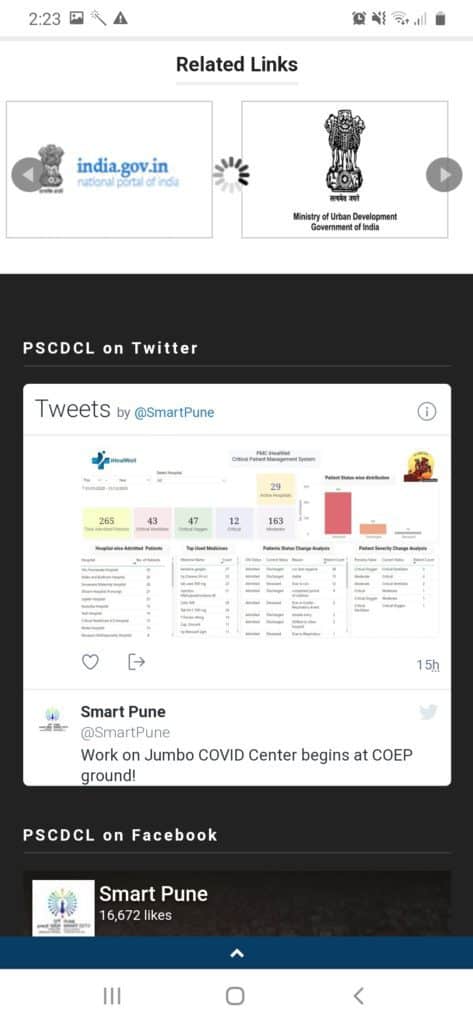Battling the COVID crisis in Pune, on paper, is an impressive team of high level city officials. Their war room is the Pune Smart City Command and Control centre set up by the Pune Smart City Development Corporation Ltd (PSCDL).
Recent visits to the city by NCP President Sharad Pawar, his nephew, deputy chief minister and Guardian Minister of Pune, Ajit Pawar and Chief Minister Uddhav Thackeray have only drawn into sharp focus the city’s struggle to contain the virus and the grim reality of many patients being turned away because of non-availability of hospital beds.
Pune’s high level COVID response team is comprised of the Divisional Commissioner, District Collector, Commissioner of Police, Municipal Commissioner, Disaster management, health officials, IT teams of PMC and Pune Police and the CEO-Smart City.
The tech route
The Smart City corporation, headed by Rubal Agarwal, is focusing on data analytics and technology to help the city tackle its COVID-19 cases. Its portal (punesmartcity.in) and Twitter account (@SmartPune) are sharing data of number of daily tests conducted, the number of positive cases, number of recoveries, number of critical patients and those on ventilators, besides the death toll.
August 12 data
New cases – 1584
Critical patients – 735
Patients on ventilator – 445
Recovered patients – 1499
Deaths (24 hours) – 28
Total deaths - 1621
Tests done (24 hours) – 6213
Total tests done - 3,36,254
It has also a launched couple of apps to bring about cohesion amongst the stakeholders – PMC, hospitals and the citizens.
Rubal Agarwal, a 2008 batch IAS officer, who took over as CEO of Pune Smart City in November 2019 is also Additional Municipal Commissioner(G) PMC. In a conversation with Citizen Matters, she shared some details about the role and functioning of the PSCDL during the pandemic.

The Smart City Command and Control Centre at Sinhagad Road is now the COVID-19 war room. PSCDL is using the existing infrastructure for supervision and community surveillance of containment zones, tracking the number of positive patients, mapping patients who are in home isolation, and planning health care resources, tracking what all facilities are available. According to Rubal, they are mapping everything through the GIS software.
A Smart City team comprising health consultants and a technical and analytics group is working on future analysis and predication based on this data. As Rubal explained, they are taking into account the density of population, the percentage of positive cases, the available testing capacity and based on these, projections are being made for the months ahead. The data is shared with the central team and with the director’s office.
In order to effectively track patients who are home quarantined and ensure they are actually staying at home, Smart City has developed a mobile app, Saiyam. It has also come up with a tele-medicine app, ArogyaDheer, where priority is given to treating people with mild symptoms at home as per guidelines. This is part of Smart City’s Health Management Information System.
PSCDL also has a dedicated cell for supporting Puneites through the crisis, with 24×7 counselling facility. People can call 7303250515 and get their concerns addressed by qualified psychologists.
Another app, iHealWell, launched by the team is meant to share real time updates on the treatment of critical patients only. For instance, if there are 15 ICU beds in Ruby Hospital, then the hospital staff will have to fill information only for those 15 patients.
“It barely requires 30 seconds to fill one patient’s information and the line of treatment followed,” says Rubal, “This information has to be updated within eight hours, so that the family knows that someone has visited the patient and checked on him/her. Otherwise there are complaints from the patient that no one from the hospital staff checked on them in the last 24 hours.”
Hospitals unhappy
The iHealWell app is designed to provide exact information to family members of patients about the treatment that is provided. Hospital authorities, however, are not pleased about it.

“At every hospital they expect the nurses to update information, but the nurses are not allowed to use their personal mobile phones while they are on duty,” said Dr Sanjay Pathare, Director of Medical Services, Ruby Hall Clinic. “Even if the PMC comes up with desktop version of the app, we cannot have the nurses queue up, reading out numbers. It’s impractical.
Hospitals suggest that someone from the clerical team can fill the data instead of nurses and this can be done periodically, instead of real time, which is how PMC wants to have it done. “The PMC is not talking to patients relatives every day, the doctors are. I am counselling a number of families every day, as are my other consultants. All of us are on video calls with patients every day. We are sending out reports every day,” says Dr Sanjay.
He also points out that real-time updates cannot be the administration’s job, as the patient’s data has to be examined in clinical co-relation with his/her condition. That can be done only by doctors, who are working 24×7 to ensure better recovery rates. The data analysis can be done later and not in real-time.
Rubal defends the app, though. “It’s not our intention to blame or police the hospitals,” she said. “Instead, we want to ensure that the best service is administered to patients. This is a very transparent app. Our main aim is to save lives.”